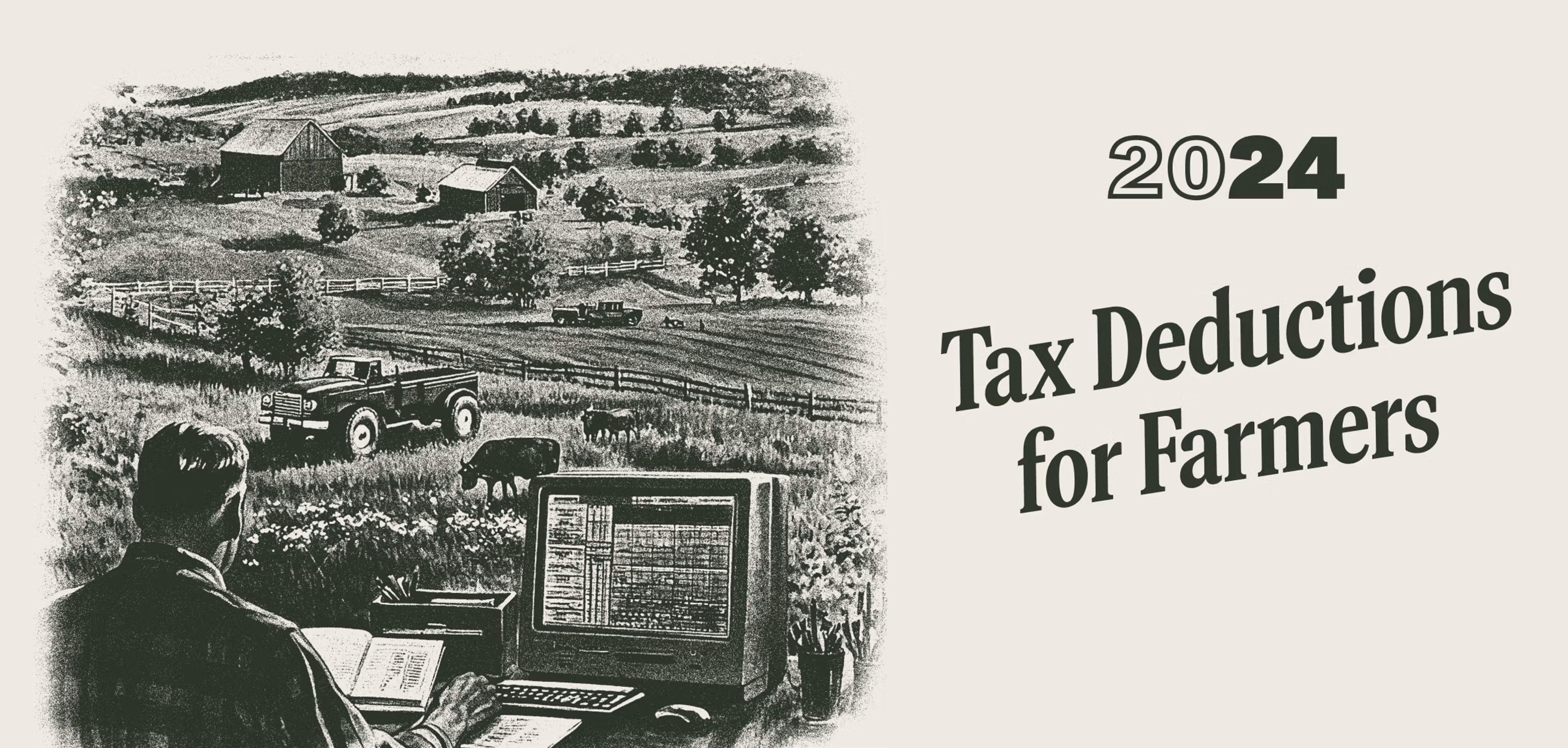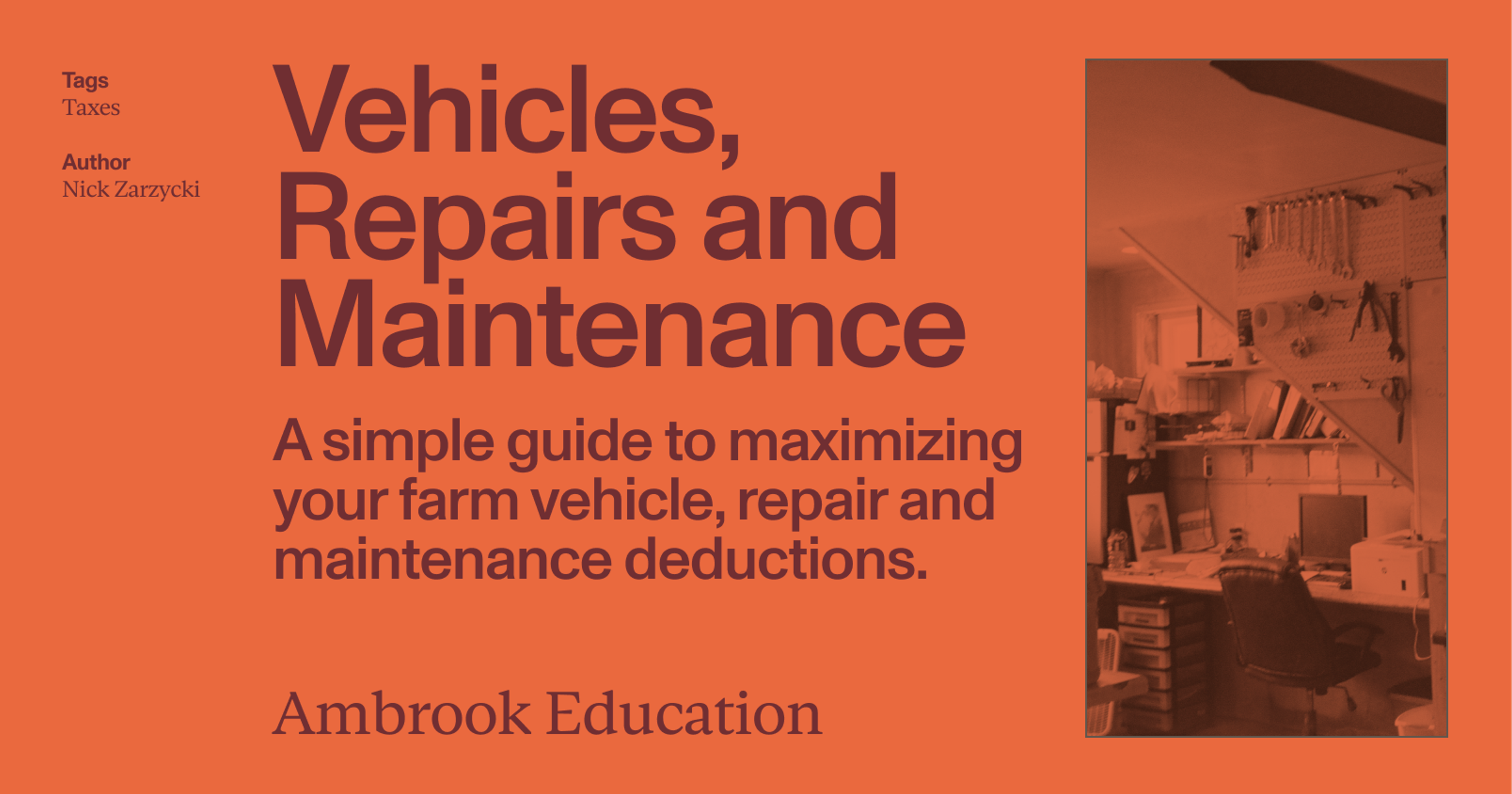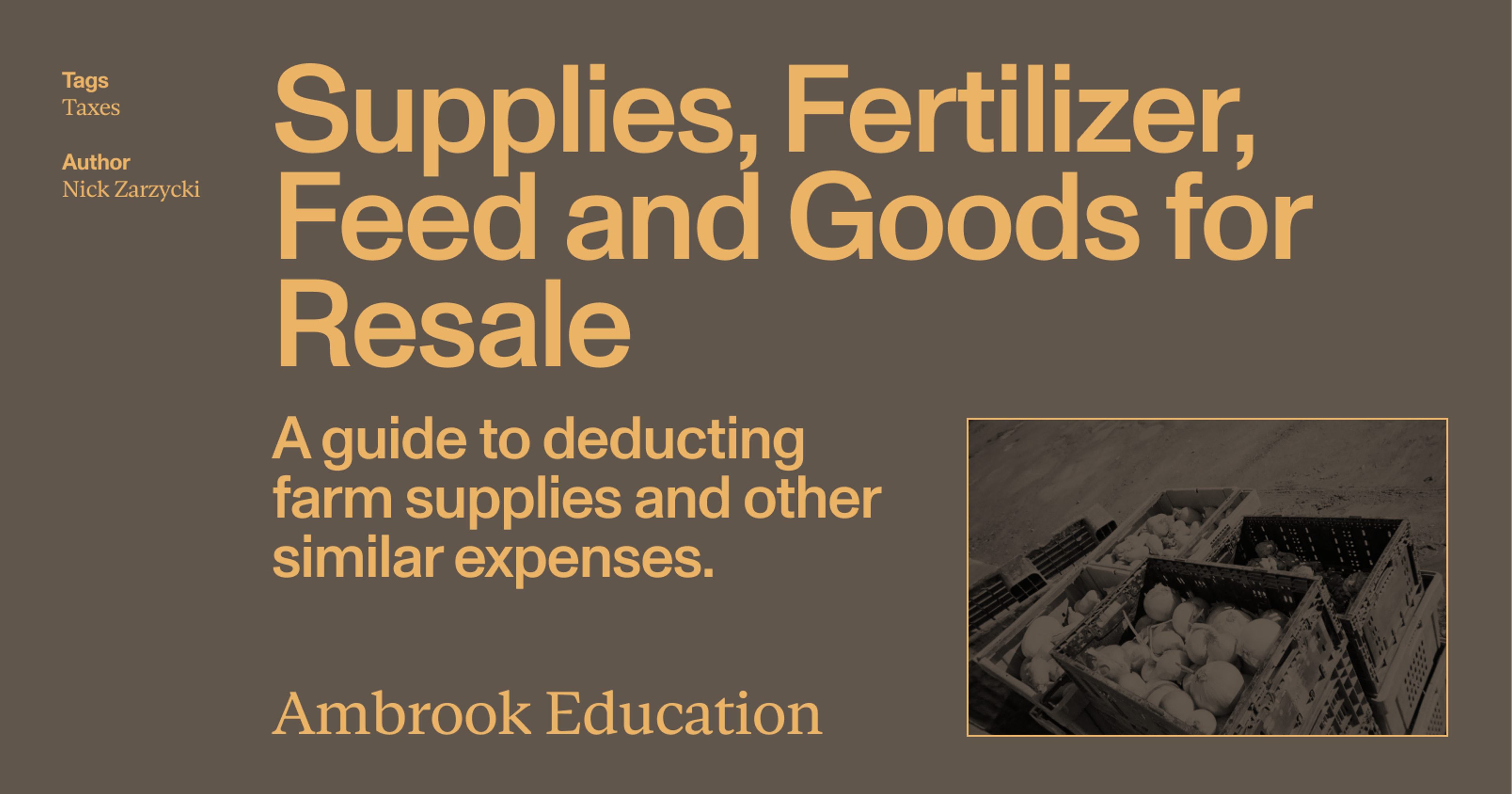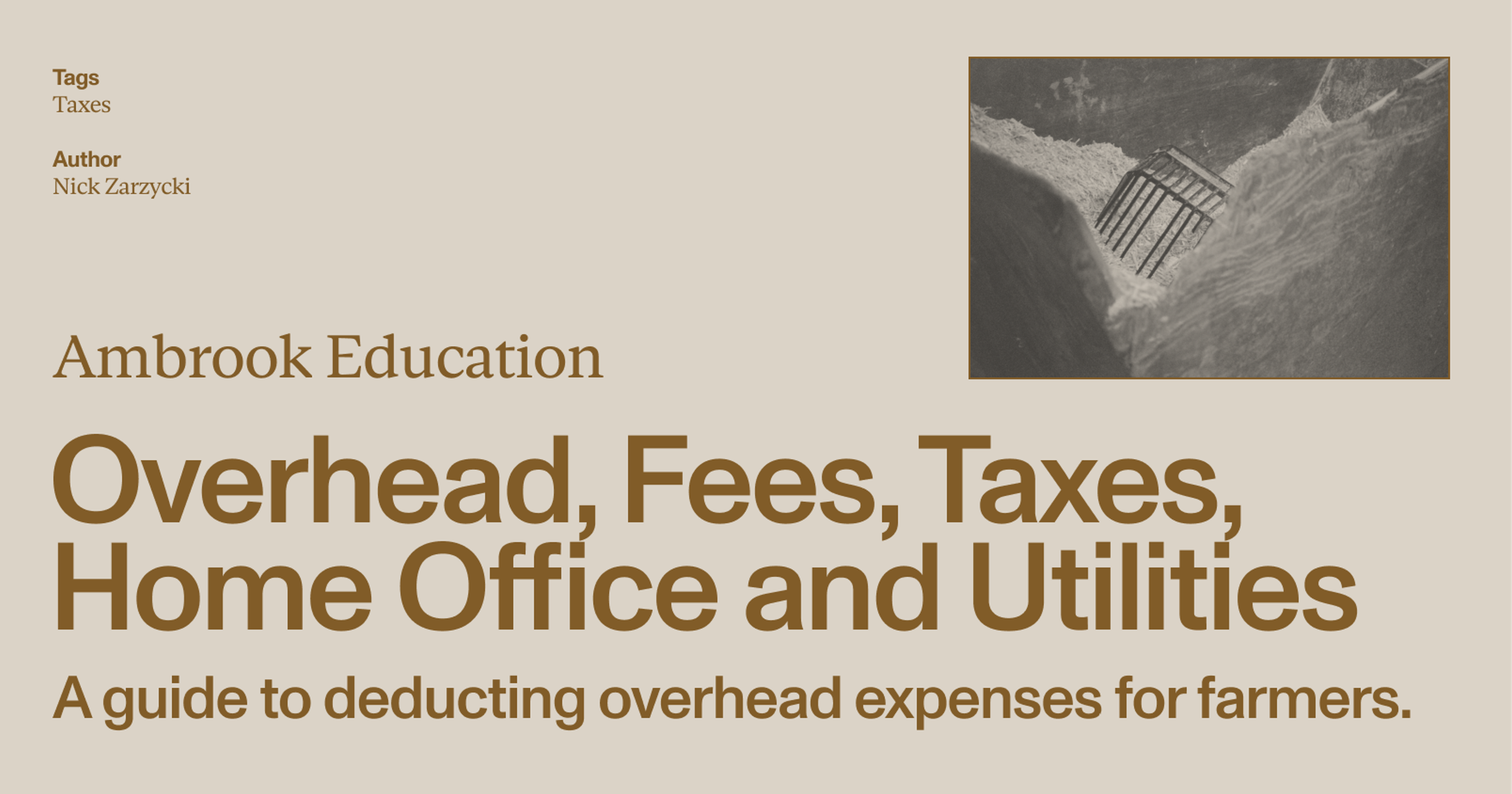Farm wages, benefits, perks, travel and meal expenses can add up, so it pays to know what is and isn’t deductible.
More than one out of every ten dollars spent on a farm in the United States goes to hired farm labor, and on farms that grow fruits, vegetables, and floriculture they make up almost forty percent of all cash expenses.
Add in other employment and personnel-related costs like insurance, perks, travel and meals, and you begin to see why deducting these expenses properly is crucial. Here’s what you need to know.
Looking for a different farm tax deduction? Start here.

Hired Labor
You can generally deduct reasonable wages paid for farm labor, piecework (i.e. labor based on number of tasks completed or volume of produced picked), contract labor, or other labor hired to help you with regular farming operations on Line 22 of Part II of Schedule F (Form 1040).
If these wages are paid to employees, you may deduct the full amount you paid them before withholding things like social security, Medicare, and income taxes. You can also deduct the employer’s share of the social security and Medicare taxes you’re required to pay on their wages.

Employee Benefits
Benefits like health insurance, workers’ compensation insurance, accident insurance, and state unemployment insurance are also generally deductible as farm business expenses. Keep in mind that in some states certain benefits (like unemployment insurance) are considered taxes, in which case you must deduct them as taxes instead.

Non-cash payments
Wages that you pay in noncash items like inventory, capital assets, assets used in your business, or room and board are also generally deductible as farm business expenses.
When you transfer property to an employee in exchange for services, deduct the fair market value of the property on the date that you transferred it. Keep in mind that if that property’s adjusted cost basis is different from its fair market value at the time of transfer, you might have a gain or loss to report on your taxes as well.

Boarding Labor and Tenant House Expenses
You can deduct the cost of furnishing and maintaining houses for boarding farm labor, tenants, or other hired help as a farm business expense. These costs can include repairs, utilities, insurance, and depreciation, but not the value of any farm products used by boarding labor.

Family employees
You can deduct wages and other compensation you pay to a child, spouse, or parent for doing farmwork as long as a true employer-employee relationship exists between you and that family member (i.e. you file a W-2 for them and withhold payroll taxes).
If that family member is a child, make sure to include those wages in their income, and remember that they might be subject to Social Security and Medicare taxes if they’re 18 or older. Keep in mind the amount you pay your child and how they spend those wages could trigger the loss of the dependency exemption.

Business travel and meals
Like any other deductible business expenses, travel expenses must be “ordinary” (common and accepted in your industry) and “necessary” (it helps develop or maintain your business in some way) in order for you to write them off.
That means lavish cruises, luxury resorts, and other extravagant expenses are usually out. Typical travel expenses that are deductible include:
Plane, train, and bus transportation
Hotel, Airbnb, hostel, and other lodging
Dry cleaning and laundry
SIM cards and other cell phone costs
Taxi between hotel and destination
These expenses must also be incurred while traveling away from home, which for tax purposes is the location of your farm business. According to the IRS, you’re traveling away from home if the following two conditions are satisfied:
Condition #1: Your duties require you to be absent from your farm substantially longer than an ordinary workday.
Condition #2: You need to get sleep or rest to meet the demands of your work while away from home.
You can only deduct the cost of meals while traveling if condition #1 and #2 from above are true.
If you drive a few hours to another state for a business conference and you stop at a restaurant for a steak dinner on the way home, for example, condition #2 won’t be met and you won’t be able to write off the dinner as a travel expense.
If you stay at a hotel that night and get breakfast the next morning before the conference starts, however, that meal expense is deductible.
You can either deduct 50% of meal expenses, or 50% of a standard meal allowance. Meal expenses can include food, beverages, taxes, and tips.
Recordkeeping requirements
The IRS recommends recording meal expenses and obtaining receipts and other documentary evidence to support the expenses at the time that you pay for them. Estimates and approximations cannot be used to prove a deduction.
If you deduct a standard meal allowance, you don’t have to keep records for individual meals, but you must still keep records to prove the time, place, and business purpose of your travel.

What to know before you start deducting
1. Make sure it’s a business expense
According to the IRS, you can only deduct expenses that are “common” and “necessary” in your line of work. Deducting expenses you use for both business and personal purposes (i.e. vehicles and equipment) often requires extensive recordkeeping in the form of activity logs, and also some proof that they’re directly associated with your business.
2. Know the hobby rules
You can’t deduct any expenses if the IRS determines you’re a non-profit or ‘hobby’ farm. This can happen if you fail to earn a profit in 3 of the last 5 years, which is when the IRS comes in to take a closer look and determine a profit motive. If you fail the profit test, however, you might be able to postpone this process by filing IRS Form 5213.
You can find a list of factors the IRS considers in the ‘Not-for-Profit Farming’ section of the IRS Farm Tax Guide.
3. Separate farming from non-farming
Remember that not all of the income earned on a farm is considered “farming income” for tax purposes.
Processing farm commodities (e.g. wine and cheese-making, butchery, canning, jamming) is not considered farming by the IRS. Providing farming services like custom harvesting, trucking commodities to market, agritourism and running an events space also don’t count.
For more, check out our guide to who is and isn’t considered a farmer for tax purposes by the IRS.

Looking for a different farm tax deduction?
We’ve gathered the most popular farm business deductions into one easy to read guide. Check out the introduction or dive into the relevant section below.
Part 1: Vehicles, Equipment, Repairs and Maintenance
Part 2: Supplies, Fertilizer, Feed and Goods Purchased for Resale
Part 3: Wages, Benefits, Business Travel and Meals
Part 4: Overhead, Fees, Taxes, Office Expenses and Utilities
Kickstart your Farm Business Deductions with Ambrook
Ambrook’s category tags correspond directly to each line on Schedule F, making it easy to compare your tax return to your records and maximize your farm business expense deductions. Combined with time-saving bookkeeping automation features, automatically-generated financial reports, and streamlined bill pay and invoicing, Ambrook does more than just save you money on your taxes: it takes the guesswork out of running your business. Want to learn more? Schedule a demo today.
This resource is provided for general informational purposes only. It does not constitute professional tax, legal, or accounting advice. The information may not apply to your specific situation. Please consult with a qualified tax professional regarding your individual circumstances before making any tax-related decisions.





